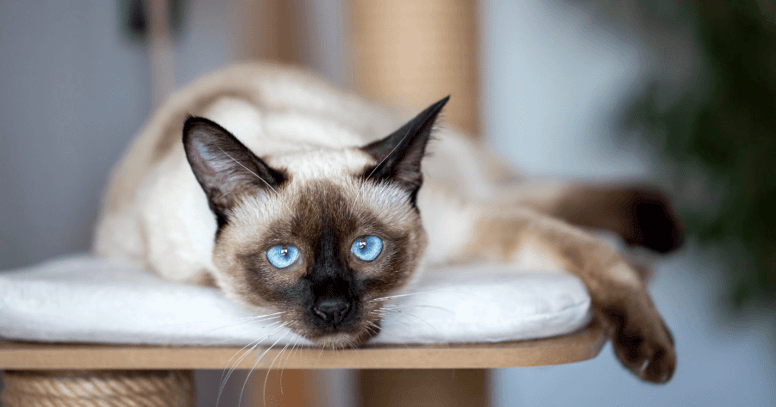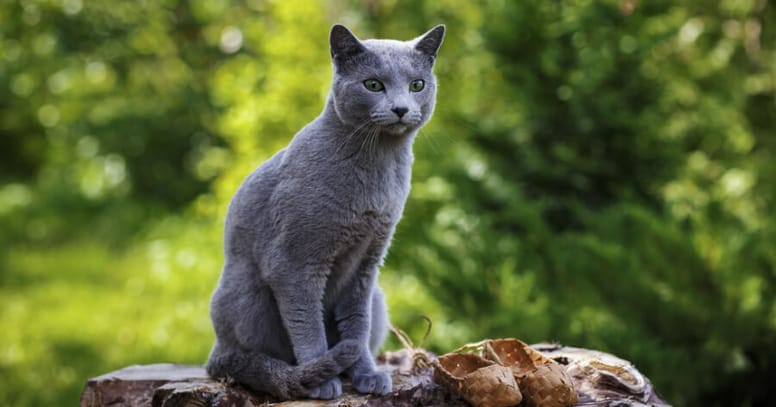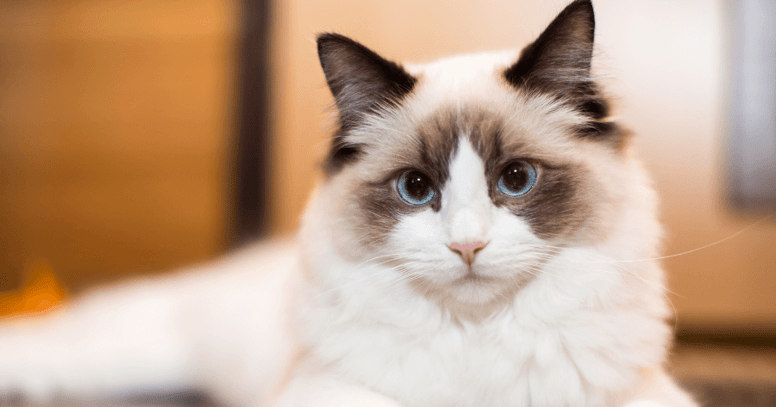Mental health can be greatly improved by emotional support animals, offering companionship through difficult times.
When it comes to breeds, certain cats are more suited than others. An emotional support animal (ESA) should be easy going, gentle and with a stable temperament.
What is the best ESA cat breed?
Each cat is an individual, with their own personality, and your cat doesn’t need to be a specific breed to offer you support. They just need to bring you comfort!
Having said this, certain cat breeds are naturally affectionate and gentle, and these are excellent qualities when it comes to choosing your emotional support cat.
The best cat for you will depend on what kind of support you feel you need. Would a playful, inquisitive and curious cat help brighten moments of low mood?
If you feel this is the case, one of the following breeds may be right for you.
Siamese

Native to Siam in Thailand, the Siamese is unparalleled in terms of elegance and charm. With their beautiful blue eyes, and dainty features, the Siamese is so full of personality.
Affectionate, intelligent and chatty, there’s never a dull moment with a Siamese cat in your home.
Maine Coon

The giant of the domestic cat world, this breed is very trainable and social. Their dense coats require extra grooming time, which can be soothing and relaxing for an anxious mind.
Fluffy, friendly and enormous, there’s plenty of the Maine Coon to love.
American Bobtail

A recent natural breed, the American Bobtail is a cat who loves to engage with their owner and play games. Those lucky enough to live with an American Bobtail, often report their cat plays fetch, bringing and chasing toys much like a dog.
They can be affectionate on their own terms and also enjoy some space, making this breed a balanced companion.
What are the best cat breeds for anxiety sufferers?
If you suffer from anxiety, the presence of a cat can be reassuring and comforting. The best cat breeds for anxiety will be friendly, cuddly and relaxed.
If you’re looking for a low-maintenance, easy to train companion, one of the following breeds may be right for you.
The American Shorthair

The American Shorthair cat is favoured by many, thanks to their versatile, loving and even temperament.
Friendly to all if properly socialised, they require company and affection, with plenty of opportunity to play.
Having been used as vermin control on the boats of explorers and sea merchants, hunting is innate to The American Shorthair. If you’re after a resilient and adaptable companion, this breed would make the perfect choice.
Persian

Striking in both appearance and attitude, the Persian cat comes from a careful selection process. Round and stocky, with very large eyes – they are not only adorable – they can also spend hours on their owner’s knee.
Calm and easy going, the Persian makes a wonderful support cat, particularly well-suited to anxiety sufferers.
Manx

Perhaps one of the most unusual breeds, the Manx has no tail as the result of a genetic mutation.
Kind, gentle and intelligent the Manx is adored by many. They are typically fairly quiet and very attached to their people, choosing to follow them around whenever possible.
This kind of company can be a real support when experiencing anxiety, and with an easy-going and affable nature, this breed is ideally suited as an ESA.
Russian Blue

Quiet and reserved, Russian Blue cats may be one of the best breeds for anxiety. As they love to cuddle and spend time with their family, they will offer reassuring and affectionate companionship.
They do not enjoy being left alone, attached as they are to their people, so when it comes to bringing a Russian Blue home with you, be sure to have lots of time to offer.
Ragdoll

The name may seem confusing to anyone who has never picked up a Ragdoll cat, but do this once and it will become immediately apparent!
Ragdoll cats are known for their fluffy, floppy bodies when picked up, almost becoming limp in the arms of their owner.
Large and strong, you’d be hard pushed to find a gentler, more easy going breed. Napping is the favoured activity of most Ragdoll cats, and their notorious affection puts them high on our list as emotional support cats.
Do I need an ESA letter for my cat?
To qualify as an Emotional Support Animal, your cat will need to be deemed significant to your mental health treatment by a doctor or psychologist.
The role of an emotional support cat is to minimise the negative symptoms of an emotional or physical disability. At present ESAs don’t have the same rights in the United Kingdom as service and assistance animals.
While we’ve created a list of the best breeds for anxiety, this serves only to help those choosing a breed. Emotional support animals can come in many forms, from lively and rambunctious cats who brighten every moment, to quiet and cuddly cats who want love and attention all day long.
When it comes to ESAs, it is the very presence of the animal that helps alleviate negative symptoms, as opposed to specific training or ability. This means that if you feel your cat offers you emotional support, in any form, they are already doing their job perfectly.



